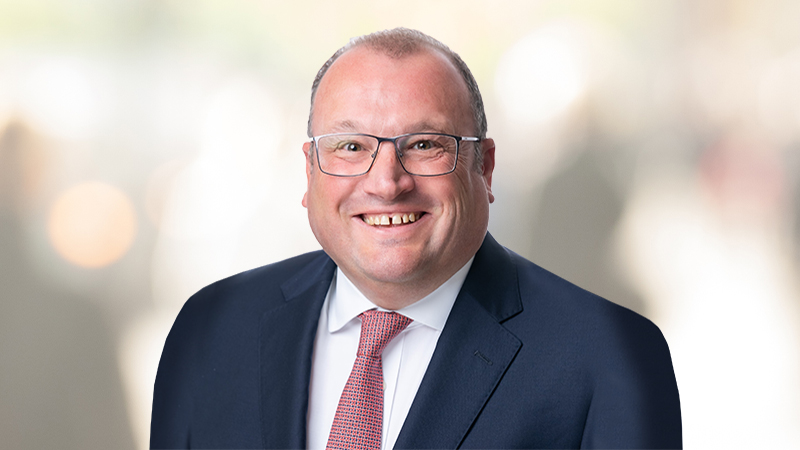Over the last few years, the UK financial advice market has been overwhelmed with mergers and acquisitions.
From large private equity-backed consolidators to small advice businesses looking to grow, many firms have entered the M&A market.
According to M&A broker Gunner & Co, business valuations for IFA and financial planning firms grew by more than 20% in 2022.
But, for the first time in years, the number of deals completed fell.
So, International Adviser is asking whether M&A deals in the UK advice market has hit its peak?
Peak
Debbie Dry, head of integrations at Loyal North Plc, said: “I think the advice M&A peak in the UK has already been passed – interest rate increases and low investor confidence has increased the cost of borrowing whilst simultaneously reducing net asset inflows to advisory firms.
“Private equity firms have been seen to be driven by profits rather than consumer outcomes which have deterred many potential sellers. The advice M&A market remains as active as ever. However, I think we will see a return to acquisitions by local firms that can maintain continuity of client care and service or even buyouts from within the firms.
“Is there an opportunity for a new type of acquirer to emerge from the ashes – one focused not only on gathering funds under management but also on actual client outcomes?”
John Westwood, group chairman at Blacktower, said: In times like these when we are experiencing significant market volatility, the knock-on effect of increased financial pressure might force firms into M&A deals, whether this is to facilitate downsizing, gain additional support or sell up all together.”
David Lawrence (pictured), Kingswood Group chief executive, added: “Financial advice M&A activity has continued to increase year-on-year. There are still a number of sellers coming to market and that can be expected to continue, driven by an increasing average age of advisers, amongst other tailwinds. With the election looming next year, it is likely that a record number of sellers will decide whether this is the year to sell.”
Private equity interest
The rise in the advice M&A market was mainly sparked by private equity firms which have taken the industry by storm.
The number of PE-backed consolidators has hit around 30 in the advice market. However, if deals are slowing, it may be because the PE firms are rushing to enter the UK advice industry.
Lawrence added: “Despite adverse market movements in 2022 and increasing price inflation, the drivers for M&A remain strong, including an aging adviser population, increasing regulatory burden and economies of scale in back-office operations.
“There still exists a multiple arbitrage between smaller advice firms and the larger purchasers. Though this has closed through intense competition over the past few years, the stable income streams from recurring advice fees remain attractive for private equity.”
Daniel Baade, chief executive of M&A consultancy firm Dyer Baade & Company, said: “We continue to see strong interest from private equity firms to enter the market and pursue a buy-and-build strategy. However, the number of appropriate new investment targets is very limited. Instead, the focus has shifted towards secondary transactions where one PE firm sells their investment to another larger PE firm.
“Oaktree selling Ascot Lloyd to Nordic Capital is a good example. These secondary transactions will accelerate the consolidation in the financial advice sector and will reduce the number of PE-backed consolidators from currently 34 firms to 15-20 in the next few years.”
Andrea Bertolini, partner at Inflexion Private Equity Partners, said: “PE interest in advice firms remains strong. A highly fragmented market creates a strong opportunity to consolidate, with over 30 PE-backed consolidation vehicles currently in the UK wealth management sector. While this suggests significant runway for M&A, increasing interest rates and dampened lender appetite could temper activity in the short-term. This may take the heat out of the market for entry prices for smaller advisers.
“The strong pace of newly PE-backed consolidators has slowed, likely down to the availability of larger targets such as Ascot Lloyd, AFH and Fairstone to name a few. We expect the next phase to be consolidation of the consolidators, as the larger firms need to acquire more significant levels of Ebitda to drive material growth. If we draw parallels with other financial services consolidated markets such as insurance, we can expect PE houses to look to mainland Europe for opportunity.
New entrants and future
There are still advisers looking to exit their business and sell up.
Buyers will still exist in the market – but this doesn’t mean there will be new players popping up as frequently as they did before.
Kingswood’s Lawrence said: “New entrants, be it private equity or trade buyers, are entering the market and looking to take advantage of a weakened pound, complimentary global business expansion or any multiple arbitrages that still exist. However, as the cost of funding increases, it is likely that a few players who are reliant on debt funding could pause or exit to focus on integration and organic growth.”
Martyn Chappell, head of UK wealth management at Dimensional Fund Advisors, said: “We still see a lot of interest and activity in M&A in the UK because the fact remains that a well-run advice business is an attractive long-term revenue stream.
“The challenge for the buyer and the seller is not always whether a deal can be done, but how to make a deal work well for the buyer, the seller, their clients and their staff.
“Many sellers go into the process hoping to manage succession, or to accelerate growth plans. In both of those cases the numbers may speak for themselves and a deal may be struck fairly quickly.”
This story originated on our sister title, International Adviser.













